|
#1
| |||
| |||
|
Hy Dear I want to know about the World Health Organization Water Drinking Standard criteria so please can you give me the Standard for the Drinking Water according to the WHO?
|
|
#2
| |||
| |||
|
You want to know about World Health Organization. World Health Organization produces international norms on water quality and human health. Here I am providing you a PDF file where you can get information about Water safety and human health also Guidelines for Drinking-water Quality. 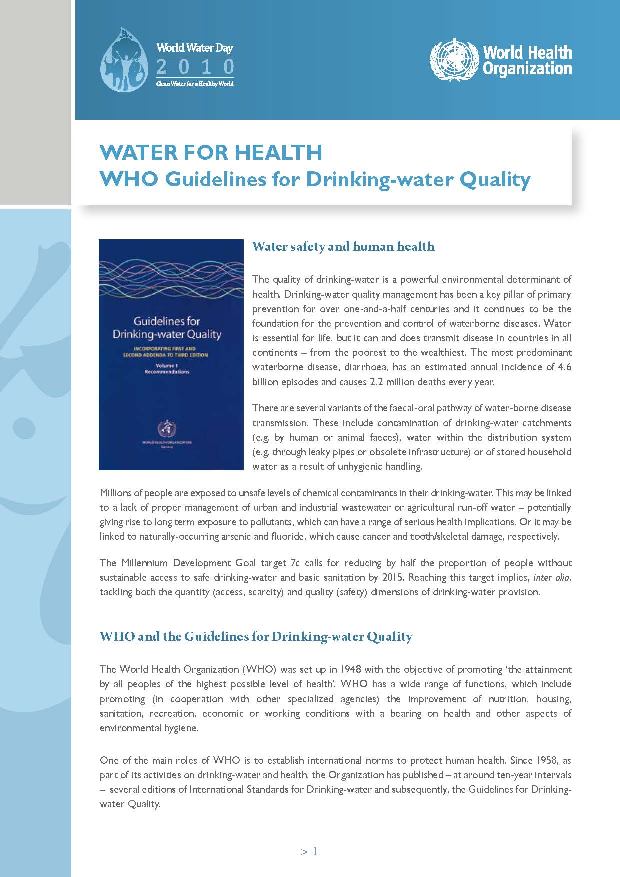 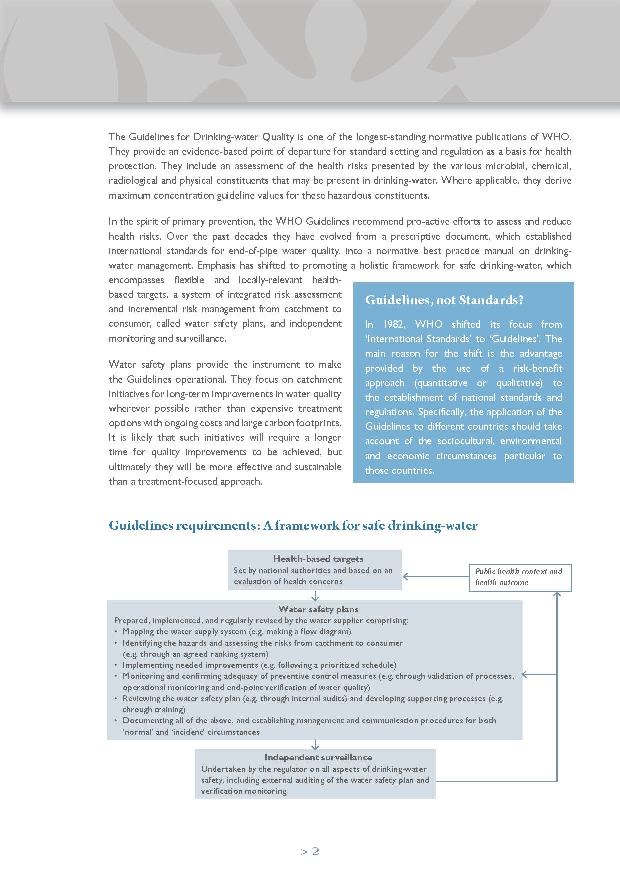 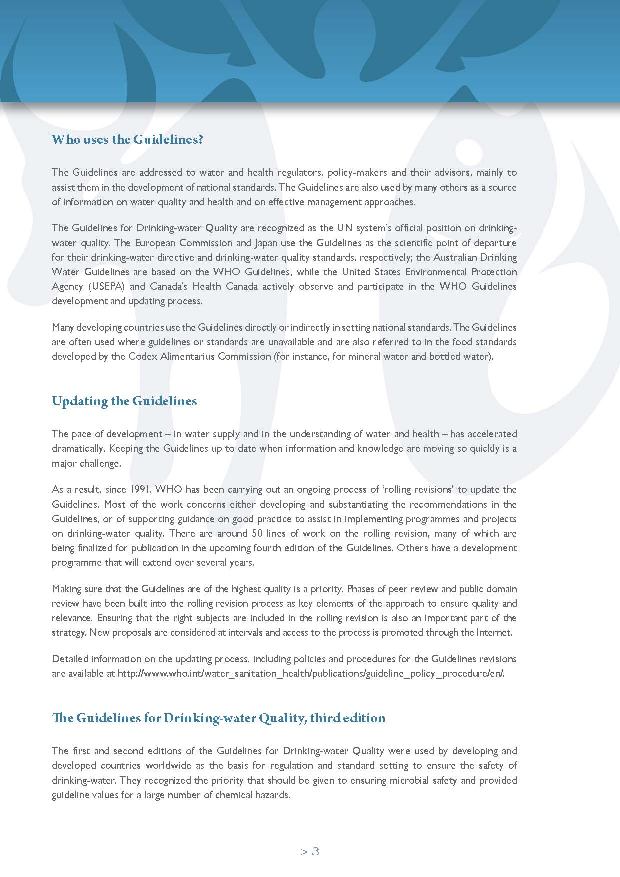 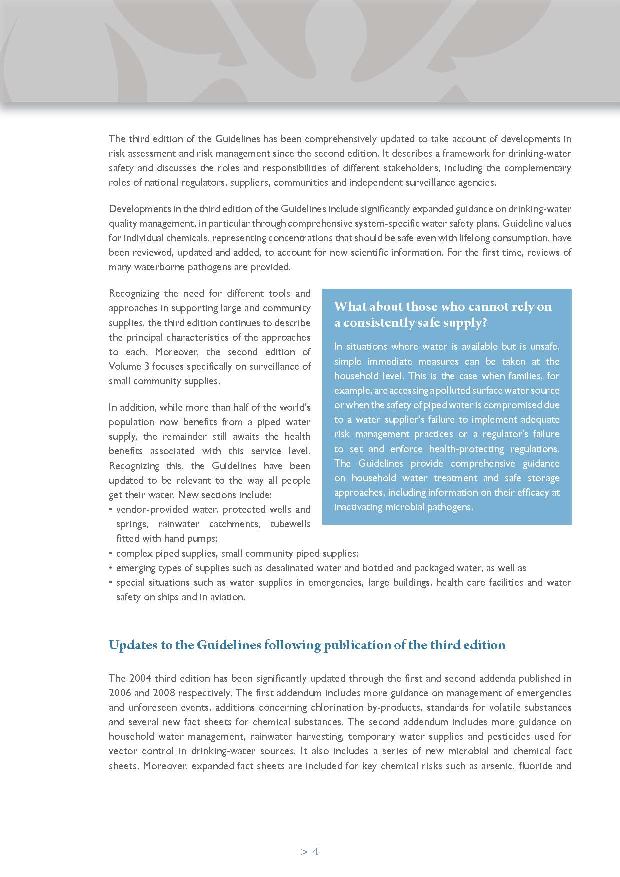 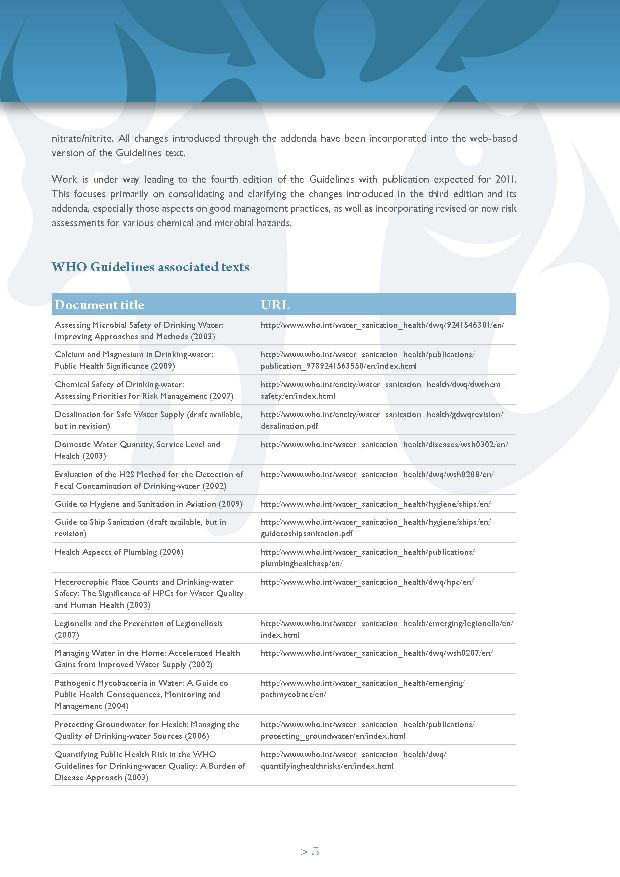
__________________ https://t.me/pump_upp Last edited by Vinodt; February 10th, 2014 at 06:37 PM. |
|
#3
| ||||
| ||||
|
Drinking water quality standards describes quality parameters set for drinking water. Despite the truism that every human on this planet needs drinking water to survive & that water may contain many harmful constituents, there are no universally recognized & accepted international standards for drinking water. World Health Organization publishes guidelines on the standards that should be achieved. World Health Organisation guidelines World Health Organisation (WHO) guidelines include the following recommended limits on naturally occurring constituents that may have direct adverse health impact: Arsenic 10μg/l Chromium 50μg/l Fluoride 1500μg/l Selenium 40μg/l Uranium 30μg/l Barium 10μg/l Boron 2400μg/l For potential occurrence in drinking water of artificial or synthetic pollutants generated by human activities, the following standards have been proposed: Cadmium 3μg/l Mercury 6μg/l For inorganic mercury Organic species: Benzene 10μg/l 1,2-Dichloroethene 50μg/l Dichloromethane 20μg/l Di(2-ethylhexyl)phthalate 8 μg/l 1,4-Dioxane 50μg/l Carbon tetrachloride 4μg/l 1,2-Dichlorobenzene 1000μg/l 1,4-Dichlorobenzene 300μg/l 1,2-Dichloroethane 30μg/l Edetic acid 600μg/l Ethylbenzene 300 μg/l Hexachlorobutadiene 0.6 μg/l Tetrachloroethene 40μg/l Toluene 700μg/l Trichloroethene 20μg/l Xylenes 500μg/l Nitrilotriacetic acid 200μg/l Pentachlorophenol 9μg/l Styrene 20μg/l
__________________ Answered By StudyChaCha Member |